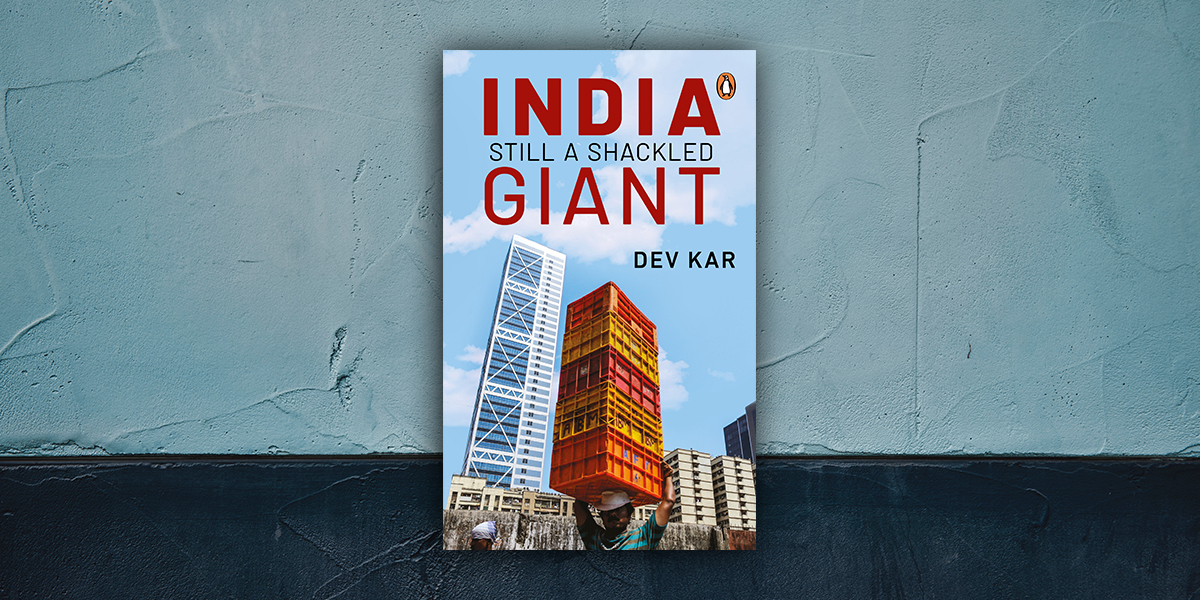
India is one of the largest economies in the world today and it has been predicted that it would become the third largest economy by 2030. Yet, an average Indian is worse off than his counterpart in other developing nations like Algeria, Indonesia, Mongolia and Morocco. The tethers of corruption and fragility have prevented it from becoming an Asian Tiger.
Author Dev Kar, a former senior economist at the International Monetary Fund, delves into the nooks and crannies of the Indian economy in a closely researched narrative in an attempt to chart out a path forward.
While a number of books have been written on India’s governance, this is the first to assess specific weaknesses in relation to other countries in the world. Assessments of governance and fragility are necessarily subjective in nature. Nevertheless, readers will find a clear picture of the country’s state of democracy and how it has evolved under successive governments. The central message is that good governance is fundamentally important. As I describe, even strongly governed advanced countries have paid a steep price for relaxing institutional oversight and overlooking corruption. Surely, then the risks arising out of a failure to govern are much higher for India. Yet, in the pursuit of high rates of economic growth, economists often lose sight of the need for inclusivity and sustainability. Together, these determine the quality of life of citizens, regardless of whether they are rich or poor. Truly, even the rich cannot insulate themselves from the fallout of poor governance. After the book went to press, signs have emerged of a sharp slowdown in economic growth. Policy measures such as tax cuts, liberalizing business regulations, increasing government expenditures and lowering interest rates may indeed counter the slowdown and avoid a crash. However, if underlying weaknesses in governance remain unaddressed, the slowdown can again emerge to derail growth. Tagore once said that when designing a chariot, we need to think not only of how fast it can go but also consider the depth of the ditches lying across its path. Without good governance, growth tends to occur in spurts and fails to improve the lives of the vast majority. A large part of the problem is that policymakers often avoid asking a basic question—whose growth are we talking about? Does growth further enrich the rich or are the benefits shared equitably by all? There is no denying that economic growth, over the past two decades, have lifted millions out of poverty. Yet, India has one of the world’s most unequal distributions of income. A main reason is that even though India achieved impressive rates of growth, entrenched corruption led to bad investment choices. Meanwhile, poorly educated and unhealthy workers could not take advantage of economic growth no matter how high they were. Thus, the benefits of growth accrued mainly to the top income brackets. In time, rising income inequality can align with other factors to undermine the sustainability of economic growth. You would think politicians would boost investments in health and education to preempt these forces. Not necessarily. Because the return on such investments takes a long time to mature, they remain unattractive to politicians fixated on short-term electoral cycles. The book deals with a wide range of such issues explained in a manner that can be appreciated by the general public. For instance, how do dirty politics nurture poor governance, corruption impact economic growth, black money drive income inequality, and weak institutions breed more corruption? Sometimes issues are explained through the lens of current events and personal experience while in other instances, I cite developments in the United States and other countries to contrast differences in governance. It took me a year and a half to write the book. In the process, I discovered an India I was unaware of. Perhaps, these discoveries would also surprise readers. Under the glare of evidence, my criticisms of the status quo may seem harsh but ultimately it was an abiding love for India that led me to write the book.
India: Still a Shackled Giant is a critical roadmap to understand the strengths and weaknesses of our country’s economical structures. Get your copy today!









